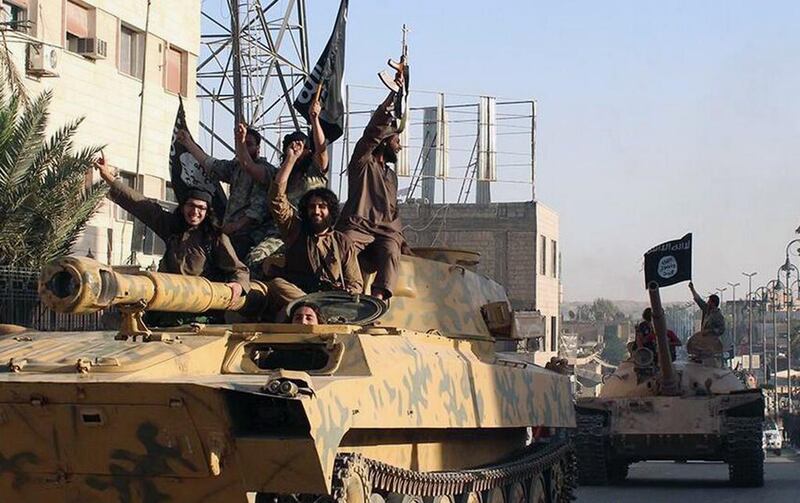Not only has the Islamic State fanned the fires of war in an already conflict-ridden region, it has tipped the scales so dramatically that it has brought rivals together to try to end the threat it has created, wrote Abdel Bari Atwan, editor-in-chief of the London-based news website Rai Al Youm.
Because of the Islamic State, “miracles” have happened in the blink of an eye, Atwan asserted. Saudi Arabia and Iran have entered into an alliance, the US has become involved in security coordination with the Syrian regime of Bashar Al Assad, and the government of Iraqi prime minister Nouri Al Maliki was removed by its close ally, Iran.
So, what are the sources of the extraordinary power possessed by the Islamic State that have led to this fast and furious alliance against it?
Before answering this question, it is worth noting that rivals joining together against a common threat is nothing new. British prime minister Winston Churchill aligned with his communist enemy Joseph Stalin, the Soviet dictator, to face the common threat of Nazi Germany; Saudi Arabia united with former Iraqi president Saddam Hussein to oppose the Iranian revolution and fundamentalist Islam joined forces with the US to kick the Soviets out of Afghanistan. The list goes on, the writer said.
The strengths of the Islamic State can be attributed to many factors. The organisation presents itself as being a champion of Sunni Islam against the exclusion faced by Sunnis in many places, particularly in Iraq. It adopts cruel methods to terrorise its enemies along the lines of previous secular and religious movements such as the French Revolution and Oliver Cromwell’s uprising in England, which claimed the lives of 60,000 people.
However, Atwan wrote, the closest historical analogy could be drawn with the actions of the Mongolian leader Genghis Khan, who killed millions of people as part of his “shock and awe” tactics.
Atwan said that the failure of the Arab Spring to achieve democracy and social justice and bring dignity back to many Arab communities created a vacuum that radical Islamist groups such as the Islamic State and the Al Nusra Front had rushed to fill. This move was made easier by the initial support from Arab and Western sources in the heat of attempts to overthrow the regimes in Syria and Libya.
The Islamic State has been the first among its peers to seize large amounts of territory – about a quarter of Iraq and a third of Syria, with six million people now under its rule. The organisation has achieved financial self-sufficiency after it looted warehouses belonging to the Iraqi forces in Mosul and the Free Syrian Army in the town of Azaz. Atwan said another achievement of the Islamic State was its ability to recruit 50,000 young Muslim from around the world, including 6,000 last month, according to the Syrian Observatory for Human Rights.
The last factor in the success of the Islamic State is that many Arab countries have become, or are close to becoming, failed states, providing a suitable environment for terrorist groups to flourish.
Atwan said that Saudi authorities are particularly concerned about the Islamic State after an opinion poll through social media showed that 92 per cent of Saudi youth support the terror group – a terrifying figure even though the poll’s margin of error was high.
The question is: can the western-regional alliance yield a defeat of the Islamic State? There is no simple answer. The US has been fighting Al Qaeda for almost 20 years, invading two countries under the banner of destroying it, to no avail.
Atwan said the unusual alliance against the Islamic State was a dramatic development and although surprises could happen, it was difficult to predict a successful outcome in the short term.
Hazem Saghieh commented in the London-based Al Hayat that although the Arab region is no stranger to violence, it has reached new heights with the Islamic State.
Under the Islamic State, rejection of “the other” has also reached its apex. What is unfolding in Iraq amounts to a genocide of Yazidis, Christians and other religious minorities, the writer said.
Politicians have viewed the issue from a strategic point of view, focusing on maps, borders, regional security and the situation in their own countries. Moral and humanitarian commitments are hardly expressed, the writer noted.
Translated by Abdelhafid Ezzouitni
aezzouitni@thenational.ae





